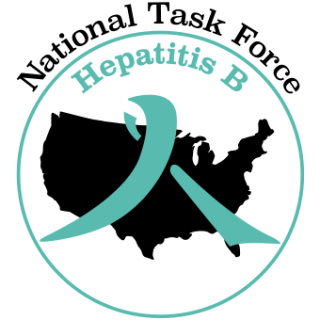Overview
Background
The National Task Force on Hepatitis B Focus on Asian Pacific Islander Americans is a volunteer-based national coalition that brings together scientists, health professionals, not-for-profit organizations, and concerned citizens in a concerted effort to eliminate the transmission of hepatitis B and decrease health disparities among those chronically infected. The Task Force was founded in 1997 and was funded by CDC until 2002. During that time, members of the Task Force contributed articles to the AAPI Journal of Health and presented position papers to the American Cancer Society. Following those years, the Task Force has become involved with HBV advocacy, screening recommendations for HBV infections, and sharing up to date resources from Task Force members and partners. The Task Force has traditionally been physician-led.
Our Vision
We envision a United States free of hepatitis B.Our Mission
Eliminate hepatitis B virus (HBV) and related chronic liver diseases, including delta hepatitis (HDV), and to prevent liver cancer in the United States by empowering and mobilizing the medical provider community; supporting existing and future workforce development; leveraging partnerships with health care providers; enabling national networking and policy development; and advocating for access to education, screening, vaccination, comprehensive care, and affordable treatment for all living the US.
What We’re Doing Now
Currently, there are over 200 members associated with the Task Force. Members are individuals who may represent public agencies, private companies, and nonprofit organizations committed to eliminating hepatitis B mortality and morbidity over the next generation. The Task Force openly solicits funds to provide in-person team-based trainings across the country as well as support monthly administrative costs associated with sharing member activities and resources. While our focus has been on providing primary care providers (PCP) with resources to help them confidently treat patients with uncomplicated cases of HBV, we have also been working with over 100 health organizations throughout the nation to share viral hepatitis resources. The National Task Force on Hepatitis B encourages everyone over the age of 18 to get screened, tested, and diagnosed to understand their health status before getting their hepatitis B vaccination. The Task Force convenes at least five teleconferences and one face-to-face meeting each year. We invite anyone interested in hepatitis B, particularly those with a focus in serving the Asian American and Pacific Islander (AAPI) communities, to join the Task Force. If you would like to join, please submit the form on our JOIN THE COALITION page. Stay connected with us through our teleconferences, emails, website, and members sharing resources and ideas.
National Task Force on Hepatitis B Strategic Plan (2021 – 2023)
Overview of Goals for January 1, 2021 – December 31, 2023
- Facilitate Provider Education Resources
- Strengthen Hepatitis B Care Management in Primary Care Setting
- Support workforce development opportunities
- Sustain a systematic structure for Task Force Administration
…
View or download full document (PDF):


